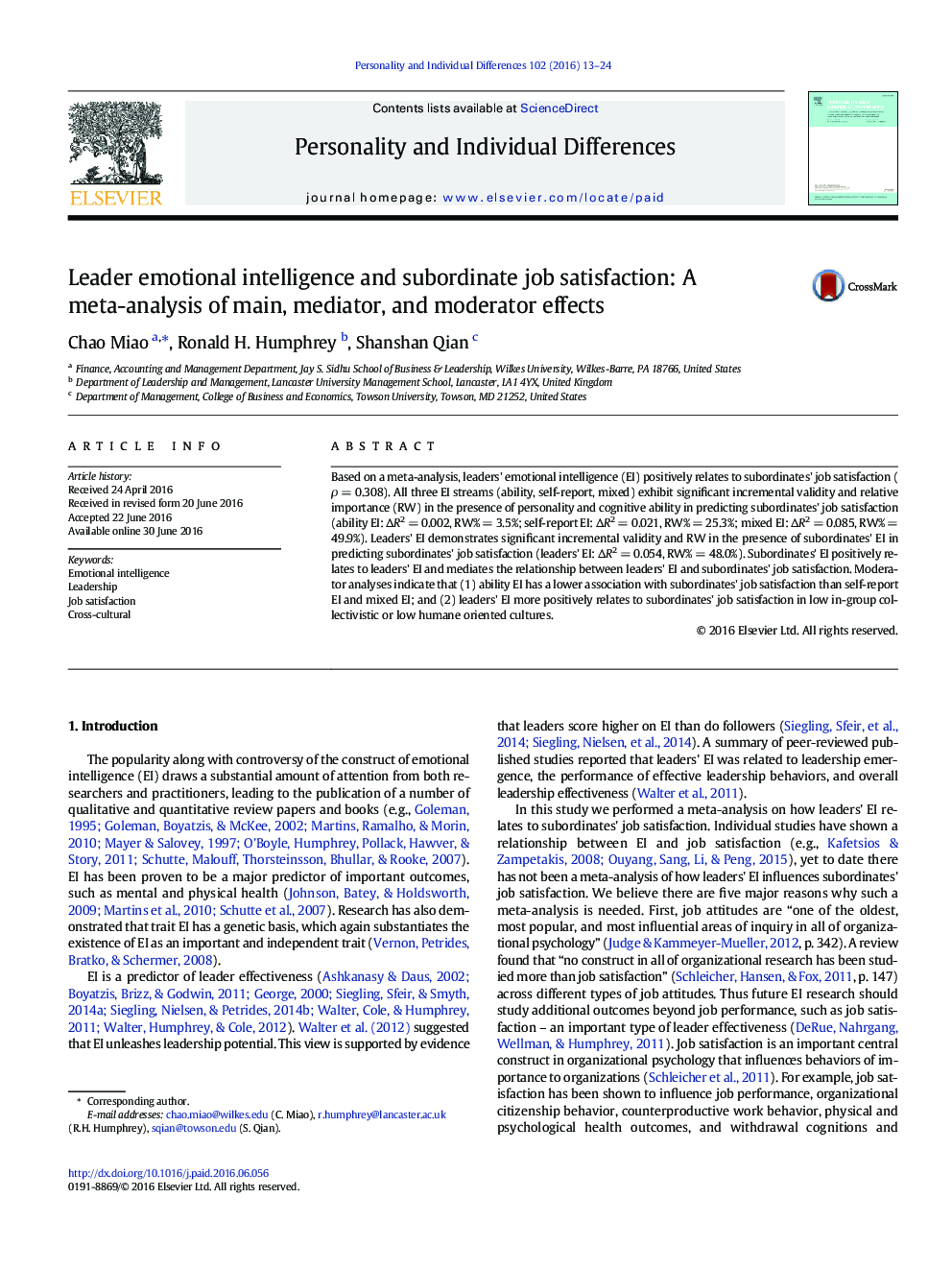| Article ID | Journal | Published Year | Pages | File Type |
|---|---|---|---|---|
| 889647 | Personality and Individual Differences | 2016 | 12 Pages |
•Leaders' emotional intelligence (EI) positively relates to followers' job satisfaction.•Leaders' EI demonstrates incremental validity.•Leaders' EI demonstrates relative importance.•Followers' EI mediates leaders' EI – followers' job satisfaction relation.•Leaders' EI varies across some national cultural dimensions.
Based on a meta-analysis, leaders' emotional intelligence (EI) positively relates to subordinates' job satisfaction (ρ̂ = 0.308). All three EI streams (ability, self-report, mixed) exhibit significant incremental validity and relative importance (RW) in the presence of personality and cognitive ability in predicting subordinates' job satisfaction (ability EI: ΔR2 = 0.002, RW% = 3.5%; self-report EI: ΔR2 = 0.021, RW% = 25.3%; mixed EI: ΔR2 = 0.085, RW% = 49.9%). Leaders' EI demonstrates significant incremental validity and RW in the presence of subordinates' EI in predicting subordinates' job satisfaction (leaders' EI: ΔR2 = 0.054, RW% = 48.0%). Subordinates' EI positively relates to leaders' EI and mediates the relationship between leaders' EI and subordinates' job satisfaction. Moderator analyses indicate that (1) ability EI has a lower association with subordinates' job satisfaction than self-report EI and mixed EI; and (2) leaders' EI more positively relates to subordinates' job satisfaction in low in-group collectivistic or low humane oriented cultures.
